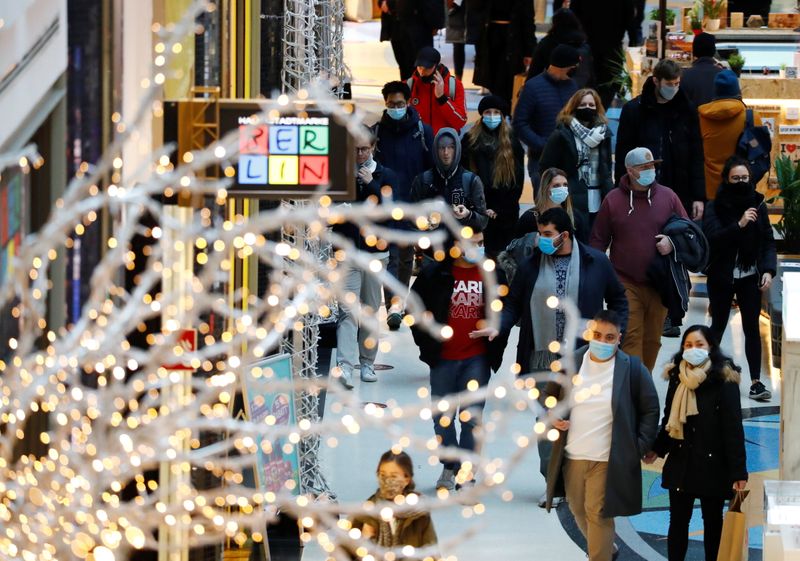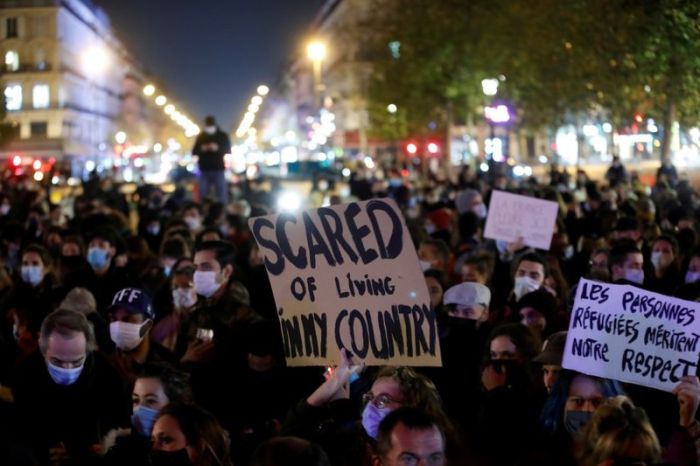BERLIN (Reuters) – Germany will probably have to stick with measures to dampen the coronavirus pandemic into January, Chancellor Angela Merkel said on Thursday, while her chief of staff suggested that restrictions might be needed until March.
“Given the high number of infections, we assume that the restrictions which are in place before Christmas will continue to be valid until the start of January, certainly for most parts of Germany,” Merkel told parliament.
Merkel agreed with leaders of Germany’s 16 federal states late on Wednesday to extend and tighten the coronavirus lockdown until Dec. 20, but ease rules over the Christmas holidays to let families and friends celebrate together.
Merkel said the increase in coronavirus cases was still much too high and the number of deaths a reason for concern.
The number of confirmed coronavirus cases in Germany increased by 22,268 to 983,588, data from the Robert Koch Institute (RKI) for infectious diseases showed on Thursday, while the death toll rose by 389 to 15,160.
Merkel’s chief of staff said rules limiting social contact might be needed for longer.
“We have difficult winter months ahead of us. This will continue until March,” Helge Braun told RTL television.
“After March, I am very optimistic because we will probably be able to vaccinate more and more people and it will be easier to keep infection rates low with the spring.”
Merkel said vaccines could arrive before Christmas.
Germany imposed a month-long “lockdown lite” on Nov. 2 to rein in a second wave that is sweeping much of Europe. Bars and restaurants are closed but schools and shops remain open.
From Dec. 1, private gatherings will be limited to five people. Over Christmas, that number will rise to 10, not counting children, although families are asked to avoid social contact for a week ahead of visits.
(Reporting by Thomas Seytal and Joseph Nasr; additional reporting by Thomas Escritt; writing by Emma Thomasson; Editing by William Maclean, Robert Birsel)





















